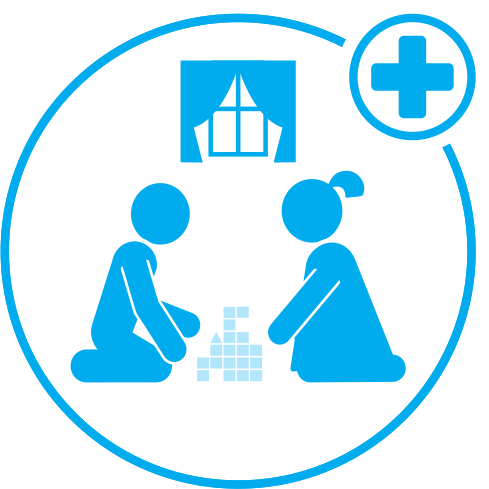Preventing Caregiver Burnout
Parenting is never an easy job! For parents of children with autism or other developmental disabilities, parenting can be even more challenging. These parents find their roles expanding into that of 24/7 caregivers who are not only expected to provide love and support, but also to meet relentless needs. The day to day interactions with various behavioral issues and demands can be overwhelming. Unchecked, these stresses can lead to a state of emotional, mental, and physical exhaustion commonly labeled “caregiver burnout.” Caregiver burnout can lead to a loss of interest and motivation. Some of the initial signs of burnout include irritability and venting about how there’s no time to clean the house or how impossible it is to get out and socialize with friends.
Some parents have a hard time asking for help and think they always have to be present. And unfortunately, many parents are not aware of the resources available that are designed to give them a break. Respite is a service designed to provide care for the child of the caregiver by an individual who is knowledgeable and trained to care for the child’s needs. This service also provides parents a break from the day to day intensive care they provide their child.
Respite care typically falls into two categories – traditional and specialized. Traditional respite is focused on taking care of personal needs and in-home activities such as washing, using the toilet, or having a meal. Specialized respite provides these same basic services but goes a step beyond. With specialized respite care, staff members are in the home to teach, supervise and actively engage while the parents go shopping, do errands, or just take some time away. These care teams are trained in step-by-step behavior analysis and goal-based treatments. They collaborate with the applied behavior analysis (ABA) service provider to follow the individual’s specific behavior support intervention plan, which spells out consistent responses to behavior problems.
The best respite care services will rotate staff members in the home so that children grow accustomed to meeting a variety of people. This makes it easier for them to transition into outside programs for more training, and eventually help them prepare to live as independently as possible. That is the ultimate goal, especially for parents of adult children who worry about who will take care of their adult children when they are no longer around. It is a relief for them to see their children make progress. Parents are happy to see how care teams can help their children develop and thrive.
Everyone needs a break sometime. And parents need not feel that they are alone. If you think you need help, contact a respite care provider to arrange a meeting to learn more about how they can offer assistance. Respite is a very valuable resource that can help prevent caregiver burnout . . . and might be just what you need.
Learn more about respite care available through 360 Behavioral Health.
About the Author
Yelba Diaz, regional manager, Behavior Respite in Action (BRIA), has a bachelor’s degree in early childhood education, and is studying for a master’s degree in education with an emphasis in applied behavior analysis, and for board certification as a behavior analyst. She became interested in this field after working with a client directly for 2 years and witnessing the behavioral changes and skill acquisition that took place – and completely took over a part of her heart.
Regional Manager – North Region
Behavior Respite in Action
Similar to traditional respite care, specialized respite care provides parents and caregivers with temporary relief from their caretaking responsibilities so they can return to their duties rested and refreshed.



